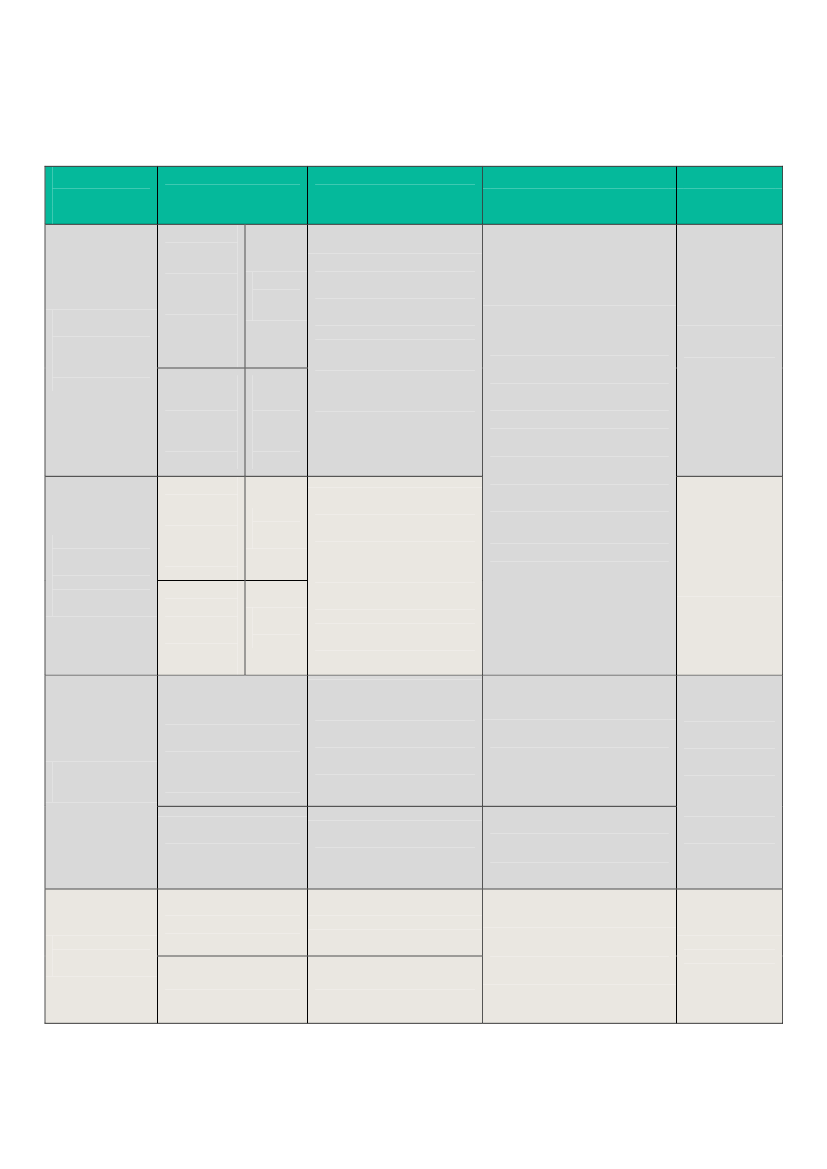Udenrigsudvalget 2013-14, Finansudvalget 2013-14, Klima-, Energi- og Bygningsudvalget 2013-14
URU Alm.del Bilag 42, FIU Alm.del Bilag 26, KEB Alm.del Bilag 74
Offentligt
C/3/7Procurement Rules8 June 2013
PROCUREMENT RULES
GLOBAL GREEN GROWTH INSTITUTE
C/3/7
PREAMBLE
Through its Procurement Rules, the Council issues the broad legislative directives governingthe procurement activities of the Global Green Growth Institute (“the GGGI”). The Councilhereby promulgates the Procurement Rules of the GGGI.These Procurement Rules are intended to provide a suitable and a uniform framework to governprocurement administration across all the GGGI offices and activities. The Rules shallstandardise the activities pertaining to the procurement administration and provide guidance tostaff for smooth execution of their duties.These Rules are effective from 8 June 2013 by approval of the Council on the same date.
2
C/3/7Contents
Article 1 Definitions .................................................................................................................. 4Article 2 Introduction ................................................................................................................. 6Article 3 Procurement Actions................................................................................................... 9Article 4 Evaluation Committees and Conflict of Interest....................................................... 18Article 5 Supplementary Clauses ............................................................................................. 20Appendix 1 Selection of Procurement Method, Solicitation Documents,Evaluation Methodology and Contract-type ............................................................................ 21
3
C/3/7Article 1DEFINITIONSa.“Coercive practice”- means impairing or harming, or threatening to impair or harm,directly or indirectly, any party or the property of a party to influence improperly theactions of a party.b.“Collusive practice”- means an arrangement between two or more parties designed toachieve an improper purpose – any action or inaction violating the objectives andprovisions of the Procurement Rules - including to influence improperly the actions ofanother party.c.“Commercial Bid”- The section of the proposal submitted by a Supplier that includesthe commercial/financial aspects of the Contract (as defined below) including bidvalidity, payment terms, etc.d.“Contract”- Legally binding and enforceable agreement, undertaking or commitment,or license creating a legal obligation and which is signed on behalf of the GGGI by anofficial having the legal authority to do so, and includes agreements concluded withSuppliers and institutional contractors, including consultants.e.“Corrupt practice” -means the offering, giving, receiving, or soliciting directly orindirectly of anything of value to influence improperly the actions of another party.f.“Cumulative Analysis Methodology”- Method of evaluation used for the evaluationof complex goods and services when factors other than price shall be considered.g.“DoA” or “Delegation of Authority” -The GGGI internal system that sets out thedecision-making responsibilities within the GGGI.h.“Ethics” -Ethics is the discipline relating to right and wrong, moral duty andobligation, moral principles and values, and to moral character.i.“EoI” or “Expressions of Interest”- Publicly advertised notices intended to solicitinterest. Generally used to request information from suppliers that may be used toidentify potential suppliers before seeking proposals. Information sought is usuallyhigh-level and specific.j.“Fraudulent practice” -means any act or omission, including a misrepresentation,that knowingly or recklessly misleads, or attempts to mislead, a party to obtain afinancial or other benefit or to avoid an obligation.k.“LCB” or“Limitedcompetitive bidding”- Transparent procurement method inwhich bids only from pre-selected contractors, suppliers, or vendors are invited bydescribing the scope, specifications, and terms and conditions of the proposed contractas well as the criteria by which the bids will be evaluated .l.“Lowest priced compliant offer methodology”- Method of evaluation of proposalwhere the lowest cost offer among the compliant offers is selected.
4
C/3/7m.“OCB” or “Open competitive bidding” -Transparent procurement method in whichbids from competing Suppliers are invited by openly advertising the scope,specifications, and terms and conditions of the proposed contract as well as the criteriaby which the bids will be evaluated.n.“Procurement Officer” -The person responsible for undertaking all procurement-related activities within the GGGI.o.“RFP” or “Request For Proposal”– Method of solicitation used for competitiveprocurement. An RFP is used when the requirements cannot be quantitatively andqualitatively determined, usually for consulting services.p.“ITB” or “Invitation to Bid” -Method of solicitation used for competitiveprocurement. An ITB is used when the requirements can be specified quantitatively andqualitatively, usually for goods, design of other works and non-consulting services.q.“RFQ” or “Request For Quotation”- Method of solicitation commonly used for low-value procurement.r.“Value for money” -Value for money in procurement requires: encouragingcompetitive and non-discriminatory processes; using resources in an efficient,effective, economical and ethical manner; making decisions in an accountable andtransparent manner; considering risks; and conducting a process commensurate withthe scale and scope of procurement. The price of the goods and services is not the soledetermining factor in assessing value for money. A comparative analysis of the relevantfinancial and non-financial costs and benefits of alternative solutions throughoutprocurement will inform a value for money assessment. Factors to consider include:fitness for purpose; a potential supplier’s experience and performance history;flexibility (including innovation and adaptability over the lifecycle of the procurement);environmental sustainability (such as energy efficiency and environmental impact); andwhole-of-life costs.s.“Supplier”- An entity or individual that is responsible for providing goods, works,consulting and non-consulting services to the GGGI.
5
C/3/7Article 2INTRODUCTION
Rule 2.1PurposeThe purpose of these Procurement Rules of the Global Green Growth Institute (hereinafter “theGGGI”) is to govern the activities of the GGGI carried out for procuring goods, works andconsulting and non-consulting services. A detailed Procurement Policies and ProceduresManual, governed by these Procurement Rules, shall be promulgated after approval from theDirector-General.These Procurement Rules shall be read in conjunction with the GGGI Delegation of Authorities(“DoA”) Manual. In case of any discrepancies between the two documents, the ProcurementRules shall prevail.
Rule 2.2PrinciplesThe procurement policies, rules and practices are based on the following principles:a) Accountability: Responsibility for the actions and decisions taken in relation toprocurement and for the resulting outcomes;b) Effective Competition: Encourage competitive and non-discriminatory processes;c) Fairness and Transparency: Treat all Suppliers in a fair and equal manner and take steps toenable appropriate scrutiny of procurement activity;d) Sustainability: Meet the needs for goods, services, works and utilities whilst generatingbenefits not only to the organisation but also to the society and the economy and minimisingdamage to the environment;e) Best Value for money: Use resources in an efficient, effective, economical and ethicalmanner.
Rule 2.3Applicability of RulesThe Procurement Rules apply to all activities with financial implications for the GGGI,including the acquisition of services provided by individual consultants and consulting firms.However, for the purposes of the present Procurement Rules, procurement shall not be deemedto refer to the acquisition of services provided under employment contracts.
6
C/3/7Where a cooperating institution has established guidelines, consistent with those of the GGGI,and assumes responsibility for project administration and supervision on behalf of the GGGI,then that institution’s own procurement guidelines may be followed for the procurementactivities of the co-financed project. The GGGI Procurement Rules shall be followed for allprojects administered by cooperating institutions that do not have their own procurementguidelines or for all projects directly supervised by the GGGI.When a Supplier enters into any sub-contracts in the course of carrying out the project, theSupplier shall seek prior approval of the GGGI and inform the GGGI of its own procurementplan and procedures. When the GGGI deems that the Supplier’s own procurement approach orprocedures are inadequate, the GGGI will require the Supplier to adopt the procedures outlinedin these Procurement Rules.
Rule 2.4Procurement EthicsThe GGGI shall seek to treat all Suppliers in a fair and equal manner in accordance with theprinciples of fairness, integrity and transparency.Nothing should prevent Suppliers from competing for the GGGI business on a fair, equal andtransparent basis. Procurement staff members, therefore, are responsible for preserving theintegrity of the procurement process and maintaining fairness in the GGGI’s treatment of allSuppliers.All GGGI personnel, and others, involved in the procurement process on behalf of the GGGIshall abide by the following standard of conduct:During the pre-solicitation phase, no one must allow Suppliers any access to specific,privileged information on a particular acquisition before such information is availableto the business community at large.During the solicitation phase, all Suppliers must receive identical information. Anyclarifications to the solicitation documents must be provided at approximately the sametime, in writing, to all Suppliers.Specifications should be linked to function. They should not include conditions limitingcompetition (e.g. branding), nor be unnecessarily restrictive, to the extent that itdiscourages competition.Individuals with a personal or financial interest in a Supplier responding to a solicitationare prohibited from any involvement in the relevant procurement process.During the evaluation process, the evaluation criteria specified in the solicitationdocuments shall be applied in the same manner to each offer being evaluated.Any procurement personnel who is or should reasonably be aware that he or she has aconflict of interest or potential conflict of interest should immediately removehimself/herself from the relevant procurement process.
7
C/3/7Rule 2.5Complaints and Appeals MechanismA Supplier that claims to have suffered or claims that it may suffer loss or injury because ofthe alleged non-compliance of a decision or action of the GGGI with the provisions of theseRules may challenge the decision or action concerned. A two-tier mechanism shall be set upfor the Complaints and Appeals Mechanism whereby the protest shall first be submitted to theProcurement Officer, who shall provide a written decision stating the basis upon which it wasmade. The protestor has the right to file a written appeal to an internal Independent ReviewCommittee, whose decision will be final and conclusive. The decisions of the IndependentReview Committee will be published.
Rule 2.6Fraud and CorruptionIt is the GGGI’s policy to require that Suppliers under the GGGI’s Contracts observe thehighest standard of Ethics during the procurement and execution of such Contracts.The GGGI may reject a proposal for award, cancel an award or debar a Supplier if at any timeit determines that the Supplier has, directly or through an agent, engaged in coercive, collusive,corrupt or fraudulent practices in competing for, or in executing, a Contract.In case that a staff member of the GGGI violates the Procurement Rules, he or she will besubject to the disciplinary measures under the GGGI`s Staff Regulations and (Provisional) StaffRules
8
C/3/7Article 3PROCUREMENT ACTIONS
Rule 3.1Procurement PlanningThe Director-General shall prepare and maintain annual procurement plans that facilitatetransparency and the effective and efficient purchase, delivery and final disposition of goodsand services. The procurement plan shall be published on the GGGI’s website.
Rule 3.2Description of RequirementsSolicitation documents circulated by the GGGI to its Suppliers shall provide a description ofrequirements and shall include:Description of the procurement such as nature, scope, quantity of goods and services.Performance requirements to be fulfilled including (neutral) technical specifications,plans, drawings, instructional materials; terms of reference for consulting services;desired outcomes; etc.Any conditions for participation, including financial guarantees and information ondocuments potential suppliers are required to submit.Minimum content and formal requirements.
Rule 3.3Methods of procurement and their conditions for useThe GGGI may conduct procurement by using the following means:a) Procurement of goods, works and non-consulting servicesa. Open Competitive Bidding (OCB)b. Limited Competitive Bidding (LCB)c. Request for Quotation (RFQ)d. Minor Purchasee. Direct Contract
9
C/3/7b) Procurement of consulting services by firmsa. Competitive Selection with Expression of Interest (EoI)b. Competitive Selection based on Shortlistc. Single Source Selectionc) Procurement of consulting services by individualsa. Comparative Selectionb. Single Source Selection
The following rules are applicable to the selection of a procurement method:a) Procurement of goods, works and non-consulting servicesExcept as otherwise provided, the GGGI shall conduct procurement of goods, works, andnon-consulting services by means ofOpen Competitive Bidding (OCB).Tenders shall besolicited by causing an Invitation to Bid (ITB) that shall be published to be widelyaccessible to Suppliers (GGGI website, external (international) websites, and localnewspapers and periodicals, as appropriate).The GGGI may engage in procurement by means ofLimited Competitive Bidding (LCB)when the subject matter of the procurement, by reason of its highly complex or specializednature, is available only from a limited number of Suppliers or when the time and costrequired to examine and evaluate a large number of tenders would be disproportionate tothe value of the subject matter of the procurement. In LCB, tenders shall be solicited fromall Suppliers from which the subject matter of the procurement is available. If theprocurement value is below the threshold defined in Appendix 1, GGGI shall select asufficient number of suppliers in a non-discriminatory way to ensure effective competition.The GGGI may engage in procurement by means ofRequest for Quotation (RFQ)for theprocurement of readily available goods or services so long as the estimated value of theprocurement is less than the threshold set out in Annex 1. The GGGI shall requestquotations from as many Suppliers as practicable, but from at least three.The GGGI may s0licit bids from a single Supplier when the value of procurement is belowthe threshold defined in Appendix 1 forMinor Procurementor when exceptionalcircumstances apply as per Rule 3.5 (Direct Contract).b) Procurement of consulting services by firmsExcept as otherwise provided, the GGGI shall conduct the procurement of consultingservices by firms by means ofCompetitive Selection.For large contracts with firms (estimated contract value above the threshold defined inAppendix 1) a formal notice solicitingExpressions of Interest (EoI)from qualified firmsshall be published (GGGI website, external (international) websites, and local newspapers
10
C/3/7and periodicals, as appropriate) to identify consulting firms that are qualified. The principlerequired terms and conditions of the consulting contract and the criteria and procedures tobe used for ascertaining the qualifications of consulting firms shall be specified. Based onan evaluation of the firms’ proven experience and expertise related to the assignment, aShortlist of qualified firms shall be prepared. Proposals shall be solicited by causing aRequest for Proposal.For contracts up to the threshold defined in Appendix 1, a simplified procedure, i.e. aCompetitive Selection based on a Shortlistof qualified consulting firms may beconducted. Shortlists of consulting firms shall normally include no less than three and nomore than six qualified and experienced firms. The shortlisted consulting firms shallreceive aRequest for Proposal.The GGGI may solicit proposals from a single consulting firm when the value of thecontract is below the threshold defined in Appendix 1 forSingle-Source Selectionor whenexceptional circumstances apply as per Rule 3.5.c) Procurement of consulting services by individual consultantsFor contracts with individual consultants, which exceed the thresholds or contract durationsdefined in Appendix 1, the GGGI will conduct aComparative Selection.This selectionprocedure will be based on interviews and/or the comparison of at least 3 CVs. GGGI mayselect an individual consultant by means ofSingle-Source Selectionwhen the value andthe duration of the contract is below the thresholds defined in Appendix 1 or whenexceptional circumstances apply as per Rule 3.5.
The threshold for applying the various procurement methods are annexed to these ProcurementRules and will be updated from time to time by the Council based on the proposal of theDirector-General.Activities must not be separated into smaller activities just to avoid using the specifiedprocurement method, solicitation documents, evaluation methodology and Contract typedefined by the financial thresholds issued by the Director-General.
Rule 3.4Selection of Evaluation Criteria and MethodologyThe evaluation criteria shall relate to the subject matter of procurement. The solicitationdocuments shall set out the evaluation criteria and the evaluation methodology to be applied.The evaluation criteria will be divided into the following categories:a) Formal criteria to be met by all Suppliers in order for their quotations or proposals tobe considered for a technical and commercial evaluation by the GGGI. Examplesinclude place and deadline for submission and (applicable if included in solicitationdocuments) registration documents, bid security, price schedules, separate technical
11
C/3/7and commercial bid submission, seal or signature affixed by bidders.b) Commercial criteria may include: price; the cost of operating, maintaining and repairinggoods or of construction; the time for delivery of goods, completion of construction orprovision of services; functional and environmental characteristics of the subjectmatter; and the terms of payment and of guarantees in respect to the subject matter ofthe procurement.c) Technical criteria such as approach of provision of consulting services, previousexperience with similar assignments, qualifications and available capacity of Supplier.
The “Lowest priced compliant offer Methodology” shall be used for the evaluation of goodsand simple works or services, where requirements are clear, compliance is easy to determine,and price/cost is the overriding evaluation criterion. In this method, the lowest cost offer amongthe compliant offers is selected. The “Cumulative Analysis Methodology” shall be used for theevaluation of complex goods and services and when factors other than price shall beconsidered. The solicitation documents shall indicate the relative weights of all evaluationcriteria including the weights assigned to the technical and commercial aspects of the proposal.To the extent practicable, all non-price evaluation criteria shall be objective, quantifiable andexpressed in monetary terms.
Rule 3.5Direct ContractDirect contract is contracting without competition and may be an appropriate method underany of the following circumstances:a)
Minor Purchases and Single Source Selections with consulting firms and individuals as perRule 3.4 and Appendix 1.There is no competitive marketplace for the requirement, such as where a monopoly exists;where prices are fixed by legislation or government regulation; or where the requirementinvolves a proprietary product or service;Due to the urgency of the project, the subject matter of the procurement may not beprocured by means of a competitive procedure;The purchase or lease of real property;In emergency cases, such as in response to a natural disaster, conflict and post conflict, orin countries where there are restrictions to free markets and enterprises.The subject item is procured to replace parts or components or to expand facilities, whichwere already procured from the considered Supplier for reasons of standardization orbecause of the need of compatibility.
b)
c)
d)e)
f)
12
C/3/7g)h)
Agreements between the GGGI and other international organizations or governments;The Director-General may request approval of direct contracting in circumstances notcovered above from the Council, based on a recommendation from the Facilitative Sub-Committee.
When Direct Contract is used, the GGGI shall record the reasons in writing in a Justificationof Direct Contract with supporting documentation.
Rule 3.6LanguageAll documentation regarding bidding shall be in English. Bids in other languages shall beconsidered if they are provided with strong justification and approved as per the DoA issuedby the Director-General.
Rule 3.7CurrencyIn principle, USD is the bid currency to be used.
Rule 3.8Bid Opening ProcedureThe official bid opening shall be conducted at such place and time/date as specified in thebidding notice, and such opening of tenders may be attended by bidders or their representativeswho intend to do so.
Rule 3.9Bid SecurityThe GGGI may require a bid security whenever it is deemed appropriate to do so. If thesuccessful bidder fails to enter into the Contract within the prescribed period of time found inthe instruction to bidders, the bid security deposited by the bidder shall not be refunded.If advance payments are requested by a Supplier on appointment, then a performance guaranteeshall be obtained unless waived by the Director-General’s approval.
13
C/3/7Rule 3.10Rejection of all BidsRejection of all bids is justified where there is lack of effective competition, or where bids aresubstantially non-responsive or nullified. If all bids are rejected, the GGGI shall review thecauses justifying the rejection and consider making revisions to the conditions of contract,design and specifications, scope of the contract, or a combination thereof, before inviting newbids.If the rejection of all bids is due to lack of effective competition, wider advertising shall beconsidered. If the rejection is due to most or all of the bids being non-responsive, new bids maybe invited from the initially pre-qualified Suppliers.All bids shall not be rejected solely for the purpose of obtaining lower prices. If the lowestevaluated responsive bid exceeds the GGGI's pre-bid cost estimates by a substantial margin,the GGGI shall investigate causes for the excessive cost and consider requesting new bids asdescribed in the previous paragraphs. Alternatively, the GGGI may negotiate with the lowestevaluated bidder to obtain a satisfactory contract by reducing the scope and/or reallocating therisk and responsibility that can be reflected in a reduction of the contract price. However,substantial reduction in the scope or modification to the contract documents may require re-bidding.
Rule 3.11Evaluation of BidsThe three phases of evaluation (formal, technical, commercial evaluation) will be followed bythe GGGI to evaluate each procurement proposal:Formal EvaluationOffers shall be evaluated for their compliance with any formal criteria stated in the solicitationdocuments. Offers not meeting the formal criteria shall be rejected and the suppliers will beinformed in writing.Technical and Commercial EvaluationThe Technical and Commercial Evaluation will depend on the Evaluation Methodologydefined in the solicitation document.Lowest priced compliant offer MethodologyThe Lowest priced compliant offer Methodology shall consist of the following steps:a) Determining which offers are compliant, and rejecting non-compliant offers. Onlybids offering goods/works/services meeting or exceeding the requirements in thespecifications shall be considered compliant.b) Choosing the lowest cost offer among the compliant offers.
14
C/3/7Normally, a one-envelope system where Suppliers submit one offer including all technical andfinancial information shall be used when applying this method of evaluation. However, a two-envelope method where technical and financial offers are sealed separately may also be usedif it is deemed necessary to complete the technical evaluation without knowing the price of therespective offers.Cumulative analysis methodologyThis method shall require a two-envelope procedure where Suppliers are requested to submittheir technical and financial offers separately in two sealed envelopes. The evaluation of thetechnical offers, based on the defined technical evaluation criteria, shall be completed prior tothe opening and evaluation of the financial offer.The financial offer shall be opened only for those offers where the scores in the technicalevaluation meet or exceed the stated threshold. For those offers where the technical proposaldoes not reach the minimum specified score, the corresponding financial offer is not eligiblefor further consideration.The proposal obtaining the overall highest score after adding the score of the technical proposaland the financial proposal is the proposal that offers best value for money.Responsibility for EvaluationAll Procurement evaluation shall be done by Procurement Officer or through the ProcurementCommittee. Contracts Review Committee (CRC) recommendation shall be required forcontracts above a certain threshold (See Appendix 1). The committee(s) involved inprocurement shall provide a report on how a decision was reached on a particular procurement.Confidentiality of EvaluationAny noticeable discrepancies, drastic scoring differences, suspected fraudulent activity, orother improper actions during the bidding process or improper discussions with Suppliersbefore award will be investigated. Any individual suspected of favouring one Supplier/proposal in a manner inconsistent with the evaluation guidance/ criteria may faceadministrative action as per the Staff Regulations and Provisional Staff Rules. The Supplierinvolved faces potentially being removed from inclusion on future bidders lists.
Rule 3.12Final Procurement ApprovalThe Director-General shall be the final approver of all procurement actions, before the GGGIenters into a Contract with a Supplier. The Director-General may delegate authority to issuefinal approval for procurement actions up to a certain threshold, and such delegations shall bedocumented in a Delegation of Authority Manual.
15
C/3/7Rule 3.13Conditions of ContractThe Contract documents shall clearly define the scope of work to be performed, the goods tobe supplied, the consulting services to be delivered, the rights and obligations of the GGGI andof the Supplier, the final deliverables of the Contract and supplementary documents includingfinancial reports and proof of spending. All participating bidders shall be aware of the generaland special conditions particular to the Contract of the projects listed in the biddingdocumentation. Contract performance clauses shall include the obligation to comply withfundamental human rights as guaranteed by the ILO core conventions. The successful biddershall not be allowed to alter the material terms of the Contract. Those bidders who could notabide by the terms of the Contract are allowed to request for the change of the terms orobligations by written request.As a point of principle, the GGGI shall have audit right to inspect a bidder’s accounts andrecords and other documents relating to the bid submission and Contract performance and tohave them reviewed prior to entering into a Contract with the GGGI, unless approval isobtained from the Director-General to waive this from a potential Contract if necessary, basedon negotiations with the bidder.
Rule 3.14Award of ContractAfter the announcement of the bid evaluation result, the first ranked bidder shall submit to theGGGI the documents required for Contract award. Within the prescribed period of time foundin the instruction to bidders, the first ranked bidder shall finalize the terms and details of theContract with the GGGI and execute the Contract. If the first ranked bidder fails to enter intothe Contract within the prescribed period of time found in the instruction to bidders, the GGGImay negotiate with and enter into the Contract with the second ranked bidder.In the course of executing the Contract, material deviation from the standard Contract theGGGI has provided in the bidding documents shall not occur. The Contract shall be final whenthe successful bidder and the GGGI's contracting officer (as per DoA) affix their respectiveseal or signature to the Contract. Unsuccessful bidders shall subsequently be informed anddebriefed.
Rule 3.15Contract ManagementThe GGGI shall continuously monitor the compliance and performance of Suppliers againstthe Contract. It is the responsibility of the project owners to ensure that Suppliers are incompliance with the contractual terms and regulations. Therefore, the project owner mustdevelop and implement the necessary and sufficient on-going monitoring procedures.Disbursements and commitments in connection with procurement activities shall be incurredonly after allocations for the GGGI activities, allotments in respect to the GGGI budget16
C/3/7approved by the Council, or other appropriate authorizations, have been made in writing underthe authority of the Director-General.An existing Contract, awarded in accordance with procedures acceptable to the GGGI, may beextended for additional goods, works or services including consulting services of a similarnature to a maximum of 20 per cent of the original Contract value, with the prior approval asper DoA, provided that no advantage can be reasonably obtained by further competition andthat the prices on the extended Contract are reasonable. Provision for such an extension, ifconsidered likely in advance, shall be included in the original Contract. Further, this extensiondoes not include contract renewals.All Contracts above USD 500,000 shall be published on the GGGI’s website.
Rule 3.16Accumulation of Low Value Procurement ActivitiesWhere low value procurement activities are grouped together under one tender for purposes ofachieving economies of scale, the total cumulative estimated amount of the tender should beused to determine the procurement method, solicitation documents, evaluation methodologyand Contract type.
Rule 3.17Framework AgreementsThe need for Framework Agreements shall be identified by the GGGI, either during theProcurement Planning phase or while implementing the Procurement Plan, to meet repetitiverequirements for standard goods or services including consulting services. A competitiveprocurement process shall be conducted for creating Framework Agreements with Suppliersfor the provision of these goods and services, in order to select the Supplier offering the mostappropriate goods or services at a competitive price, with favourable terms and conditions forthe GGGI. Once a Framework Agreement is awarded to a Supplier, a Contract or PurchaseOrder will be signed with the Supplier for every new project delivered within the FrameworkAgreement, without the requirement for a tendering process.All Framework Agreements shall have a limit to the scope of allowable services under theFramework Agreement, and a limit to the consolidated value of goods or services that can beprocured under the Framework Agreement. A tendering process will be required to award aContract for the provision of goods or services either outside the allowable scope of goods orservices, or once the value-limit has been reached, even if the award is made to the Supplierwith whom the GGGI has entered into a Framework Agreement.Framework Agreements shall usually be signed for three years, with an option of extensionbased on satisfactory performance of the Supplier. The terms and conditions of the agreementshall also be reviewed every three years.
17
C/3/7Article 4EVALUATION COMMITTEES AND CONFLICT OF INTEREST
Rule 4.1Conflict of InterestAll members of any of the committees, involved in the procurement process, shall declare theirconflict of interest, if any, and ask to be removed from the committee and procurement process.Any noticeable discrepancies, drastic scoring differences, suspected fraudulent activity, orother improper actions during the bidding process or improper discussions with Suppliersbefore award will be investigated. Any individual suspected of favouring one Supplier orproposal in a manner inconsistent with the evaluation guidance/criteria may face administrativeaction up to and including termination. The Supplier so involved may be removed frominclusion on future bidder’s lists or may have its tender cancelled.
Rule 4.2Procurement OfficerThe GGGI shall designate a Procurement Officer who shall be responsible for all procurementactivities under the supervision of the CFO. The Procurement Officer will be responsible forannual procurement planning, all the processes relating to preparation and management ofbidding process, including reporting and performing secretarial activities to the ContractReview Committee and supplier relationship management.
Rule 4.3Contract Review CommitteeThe Contract Review Committee shall evaluate any high-value, critical or complexprocurement proposals, as per the criteria and thresholds defined in Appendix 1.
Rule 4.4Composition and Role of the Contract Review CommitteeThe Contract Review Committee shall be chaired by the Deputy Director-General forManagement and Administration and will consist of the Chief Financial Officer, Legal Counseland a Director from the relevant operational area.The Committee shall conduct the following tasks for all procurement actions as per Rule 4.3:a) To review and confirm that the proposed procurement actions are based, inter alia, on
18
C/3/7compliancy, fairness, integrity and transparency, and, as such, are impartial;b) To provide general advice regarding the financial, commercial, operational implications ofany proposed procurement action, comment where appropriate as to whether, in its view,the proposed action, inter alia, is in the best interest of the GGGI, and advise whether theproposed procurement case is appropriate;c) To evaluate and review the adequacy or necessity of the requirement being met under theproposed procurement action related to the selection of bidder and award of Contract; and,d) To make a final procurement recommendation to the Director-General to approve biddingprocess and Supplier selection.
Rule 4.5Composition of the Procurement CommitteeThe composition of Procurement Committee shall be:a) Representative from End User Department or Division, with knowledge of the technicalaspects of the bidb) Procurement Officerc) Representative from Financed) A neutral external subject matter expert, in case the bid is very technical and the knowledgeof the technical aspects of the bid is not available within the GGGI.
Rule 4.6ExpertiseAll committee members shall have appropriate technical and procurement expertise andexperience.
19
C/3/7Article 5SUPPLEMENTARY CLAUSES
Rule 5.1Effective DateThese Procurement Rules are effective from 8 June 2013 by approval of the Council on thesame date.
20
C/3/7Appendix 1 – Selection of Procurement Method, Solicitation Documents, EvaluationMethodology and Contract-typeCriteria(Ref: Rule 3.3)Procurement Method andSolicitation DocumentsDescription and Objective ofProcurement MethodEvaluation MethodologyContract-type
- Greater thanUSD 200,000
Goods, works,non-consultingservices:OpenCompetitiveBidding(OCB)
Invitationto Bid(ITB)
ConsultingServices:CompetitiveSelection withExpression ofInterest (EoI)Goods, works,non-consultingservices:- Between USD80,001 and USD200,000 or- Limited number ofSuppliersLimitedCompetitiveBidding(LCB)ConsultingServices:CompetitiveSelectionbased onShortlist
- Requestfor EoI- RequestforProposal(RFP)
The objective of OCB is toprovide all eligible prospectivebidders with timely and adequatenotification and an equalopportunity to bid for therequired goods, works andservices.Advertisement on GGGI website,external (international) websites,and local newspapers andperiodicals, as appropriate to bewidely accessible to Suppliers.
Lowest priced compliant offerMethodology if price/cost is theoverriding evaluation criterion, orCumulative AnalysisMethodology when price andquality criteria shall beconsidered, ex: consultingservices.
Contract,signed as perDoA
Invitationto Bid(ITB)
Competitive procedures usingdirect invitations to bid withoutadvertisement.There are a limited number ofSuppliers who are able to providegoods or services or cost or timeto conduct an OCB/EoI would bedisproportionate.For individual consultants:Evaluation of CVs from at leastthree potential candidates.Written price quotations from atleast three Separate Suppliers toensure competitive prices.Appropriate for readily available,off-the-shelf goods or standardspecification goods/services thatare small in value.
Procurement Committee conductsevaluation.When two-envelope system isused, Technical Evaluationcompleted before CommercialBids opened and evaluated.Contract Review Committee(CRC)’s recommendationrequired above USD 500,000Approval as per DoA
Contract,signed as perDoA
RequestforProposal
Goods, works, non-consulting services:Request for Quotation(RFQ)- Between USD7,001 and USD80,000
Lowest-priced, technicallycompliant offer is selected.Approval as per DoA
Consulting Services:Single Source Selection
Written proposals from oneconsulting firm. CVs from atleast three potential individualconsultants.
Evaluation of proposal/CVs;Fees based on market price.Approval as per DoA.
Purchase Orderacceptable butContract maybe developeddepending onthe complexityof goods orservices to beprocured.Signed as perDoA
Goods, works, non-consulting services:- Up to USD 7,000Minor Purchase
Off-Shelf Purchase
Consulting Services:Single Source Selection
Single Source Selection forConsulting Services.
Direct ContractMonitored by ProcurementOfficerApproval as per DoA
Purchase Ordersigned as perDoA
21
C/3/7Contractrequired aboveUSD 50,000,below whichPurchase Orderacceptable.Signed as perDoA
Detailed criteriaoutlined inparagraph 3.5
Direct Contract /Single-Source Selection
Contracting without competition(single-source) under specifiedcircumstances as per Rule 3.5.
Any request for direct contractingmust be accompanied by awritten, sufficiently detailedjustification
The thresholds in the table above may be reconsidered and revised from time to time by the Council based on the proposal of the
Director-General.
22






















